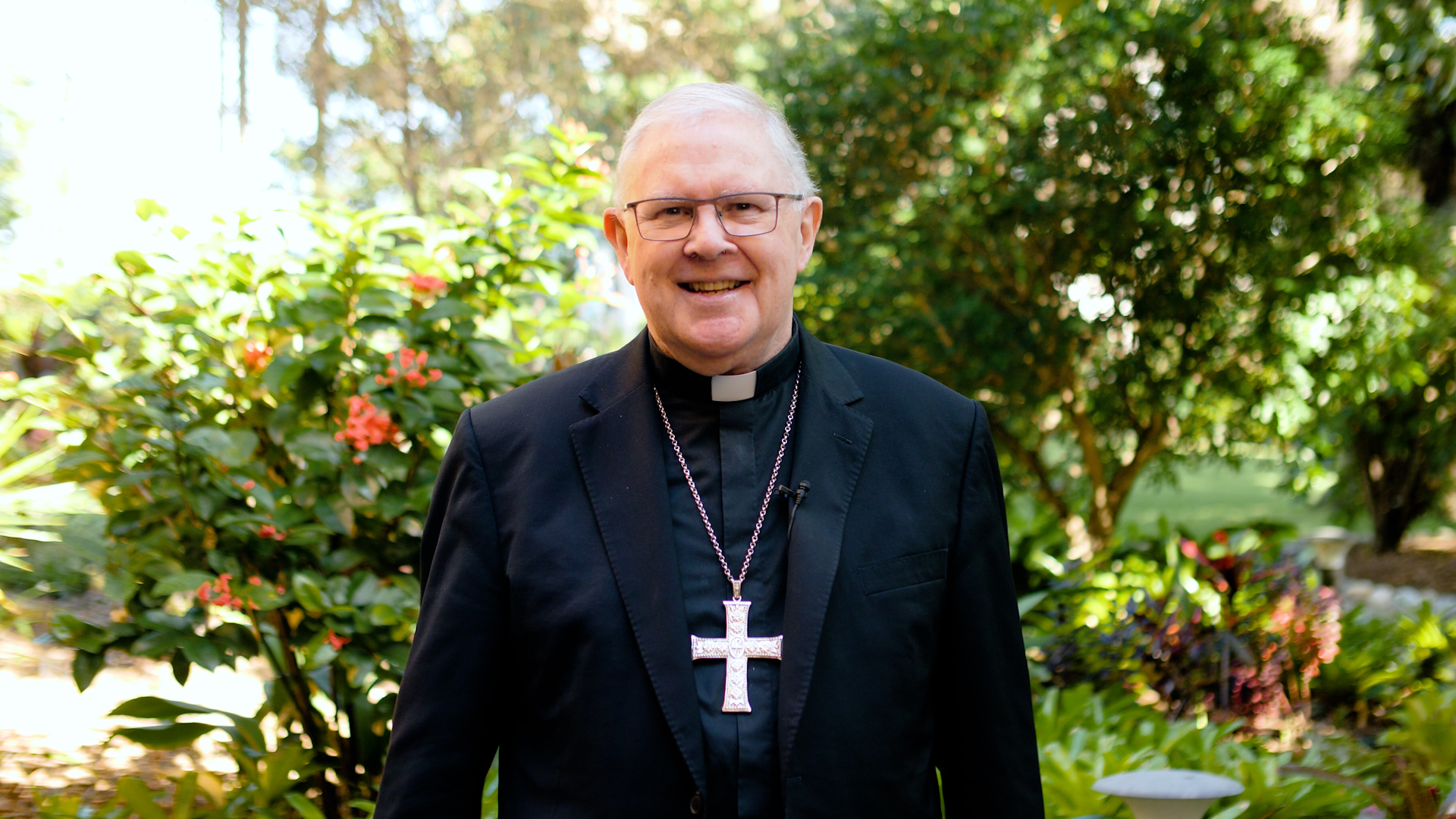Archbishop Mark Coleridge’s Homily for Holy Thursday, 17th April at the Cathedral of St Stephen.
The question, Who knows what? is central to the Bible. This is because for Scripture the prime difference between God and the human being is that God knows everything and the human being does not. By contrast, the pagan world understood the difference between the gods and human beings as a difference of mortality. The gods live for ever and human beings do not. The God of the Bible is also immortal but is, more importantly, all-knowing, which the pagan gods are not. For Scripture, the chief task of the human being is to grow in knowledge, moving towards the knowledge which God already has and wants to share with us.
The omniscience of God in the Old Testament passes to Jesus in the New. In the Gospel we have just heard, we’re told that Jesus knows three things: first, that his hour has come to pass from this world to the Father; second, that the Father has put everything in his hands and that he has come from God and is returning to God; and third, who it is who will betray him. So Jesus knows everything; and he’s as much in control as he is in the know.
For the disciples, however, things are different. Before he washes their feet Jesus says, “You do not know what I am doing”; and Peter’s reaction makes it clear: “You shall never wash my feet”, he says. He does not know. Once Jesus has rebuked Peter and washed their feet, he asks, “Do you know what I have done to you?” Because he knows everything, Jesus never asks a question to obtain information he doesn’t have. As with the all-knowing God of the Old Testament, a question from Jesus is a summons to the human being to come closer to the full knowledge he already possesses.
What Jesus has done in washing their feet has turned their world on its head: the master does what fell to the lowest-ranking servant. Power is radically redefined as service; and it will take the disciples time to understand the meaning of this. As Jesus himself says, “Later you will understand”.
Not only will they need time to understand what the washing of feet means. They will also need time to understand what Jesus does later in the meal when he offers the bread which is his Body and the wine which is his Blood. For the disciples, this would have been even more baffling than the washing of their feet. The master who has assumed the role of lowest-ranking servant now offers himself as sacrificial victim to be consumed. What on earth might this mean?
When Jesus says, “Later you will come to know the full meaning of the washing of feet and the breaking of bread”, he means, “Only after you have seen me crucified and raised from the dead”. For both the washing of feet and the breaking of bread look to the self-sacrifice consummated in the death and resurrection of Jesus.
Without the death and resurrection, the washing of feet remains only an edifying example which leaves Christianity no more than a moralism, and the breaking of bread remains only a kind of role-play, evoking a long distant event, the Exodus. But once the disciples have seen Jesus crucified and raised from the dead, the washing of feet becomes for them a potent sign of the self-emptying which looks like death but leads to life; and the breaking of bread becomes the Spirit-empowered memorial, the anamnesis, which makes the sacrifice of the Cross for ever present and potent.
A Church that doesn’t understand what it is to wash feet and break bread will be a moralising Church locked in the past and left to its own devices, a Church which has nothing in common with Jesus – like the protesting Peter to whom Jesus says, “If I do not wash you, you can have nothing in common with me”. But a Church which knows what it means to break the bread will “reproduce the pattern of the Lord’s death”, as Paul says in the Letter to the Philippians (3:10). It will have in common with Jesus the pattern of dying and rising. Living his self-sacrifice, becoming the Body broken and the Blood poured out, it will wash the feet of the world, even in the Blood of Christ, seeming to die but rising to life.
Like the disciples, we need time to understand this, to come to the knowledge into which the Lord calls us this evening. The celebration of Holy Thursday is a privileged moment to grow in that knowledge. But we will know more by the time we’ve passed through the Triduum to Easter with our eyes opened to see the Risen Lord, he who comes to meet us in the morning light, scars shining like the sun.
Then we will be able to say, “Now I see; now I understand; now I know that the washing of feet and the breaking of bread are not just long distant events to be recalled but are the presence and power of the Paschal Mystery here and now, the Exodus that is for ever”. Amen.
